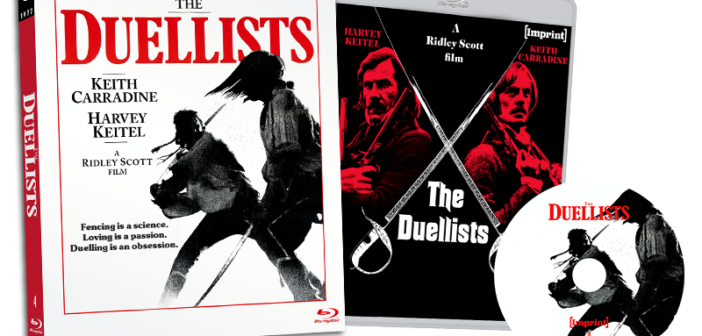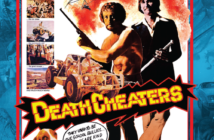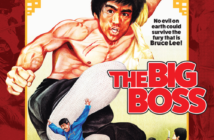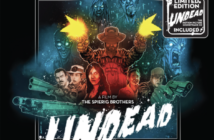Ridley Scott is often derided as director who favours style over substance – an add man made good, yet that’s a little simplistic, with Scott the victim of his formidable ability to make the celluloid look amazing. He’s definitely directed some forgettable films, but his first three are The Duellists (1977), Alien (1979) and Blade Runner (1982). It’s hard to think of a better introduction to cinema.
The Duellists is possibly his most lush and impossibly beautiful, which is ironic considering its $900,000 is the smallest budget he has since had at his disposal. This pristine 1080p Blu Ray looks like a still life painting that’s come to life, so its not a surprise to learn that he was significantly influenced by Napoleonic painters like Georges de La Tour, famed for his ability to make his subjects look like they were illuminated by candlelight, though also Stanley Kubrick’s Barry Lyndon (where NASA loaned Kubrick cutting edge lenses that allowed him to shoot using only candlelight as a light source).
Based on a short story by Joseph Conrad (Heart of Darkness), the film stars Harvey Keitel (one year after Taxi Driver) as Gabriel Feraud and Keith Carradine (two years after Nashville) as Armand d’Hubert, two officers in Napoleon’s army who fight a series of duels with each other over the course of about 19 years. What slight caused this action is never entirely clear, yet Carradine’s d’Hubert feels honour bound to accept, despite being a reluctant participant from the outset. Feraud meanwhile is relentless, determined to prove himself and exact his revenge. For a film very much about class, Keitel’s New York accent and attitude plays well against the refined nobility of Carradine’s character. Keitel is an animal, a fighter who’s had to scrap to get any kind of advancement or respect, Carradine meanwhile has his rank bestowed upon him thanks to his birthright. Carradine is a symbol to Keitel of a status he can never achieve. This drives his hatred.
The Duellists is not the kind of swashbuckling romp that you’d normally associate with swordplay. Here the duels are desperate and dangerous. Both men suffer significant wounds, and Scott’s use of a handheld camera allows us to get in close. These scenes are not just well shot but impossibly tense.
In the director’s commentary Scott admits he operated the camera himself and in the duels was wrapped in a blanket to avoid the blows. In fact the directors commentary is quite remarkable and worth the price of admission alone. He speaks of cheap hacks, using fishing wire to create wound effects, painting a coach black at the front and red behind so it could just be turned around out of shot and sent back again. Also being able to cast Albert Finney (Tom Jones) for just a crate of champagne. But mostly he talks about the light, about chasing it, doing whatever it took to get the shot.
The score, which strongly references the music of the 18th century, is quite an achievement from Howard Blake (The Snowman). If the film received wider distribution the beautiful and poignant flute theme would be immediately recognisable, similar to the way we view Morricone’s score to The Mission today.
Unusually he’s given a feature length commentary here, alongside an isolated score. His language in particular is telling, speaking of using sharp musical flourishes to reference the swords – which are ostensibly long needles. He goes into detail about the instrumentation and the decisions made, referencing the great classical composers such as Haydn or Mozart, or Chopin. With the dialogue and sound design removed it’s fascinating to hear how his music has unconsciously shaped our experience of the film.
The highlight of the extra features is American director Kevin Reynolds (Waterworld) watching the film with Scott and asking all the questions you would ask if you were a feature film director. Their discussion about light in particularly is illuminating (sorry). Or on courting Keitel for the role, spending two and a half months seeing him four times a week and finally convincing him by discussing food, France and cigars. “Visualists like you, you like to force the eye,” Reynolds says at one point and Scott nods. The Duellists had a profound influence on Reynolds and you get the sense that he’s finally getting the opportunity to ask the questions he’s always wanted to. As a result Scott is open and reflective, revealing far more than in the directors commentary.
The Duellists is a fascinating reflection on honour, class and single minded obsession. It’s one of Scott’s best films, yet it frequently gets eclipsed by some of his later output. It’s great to see it get such overdue and loving treatment. It’s always been such a mysterious film, yet these commentaries, interviews and contextual information help elevate the film to the status where it belongs.




